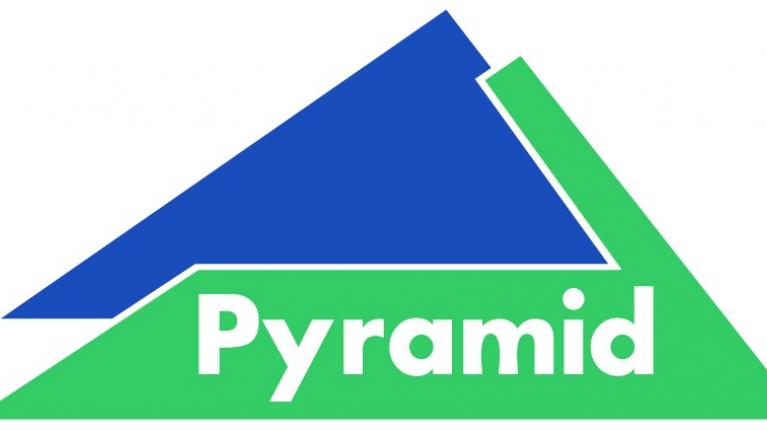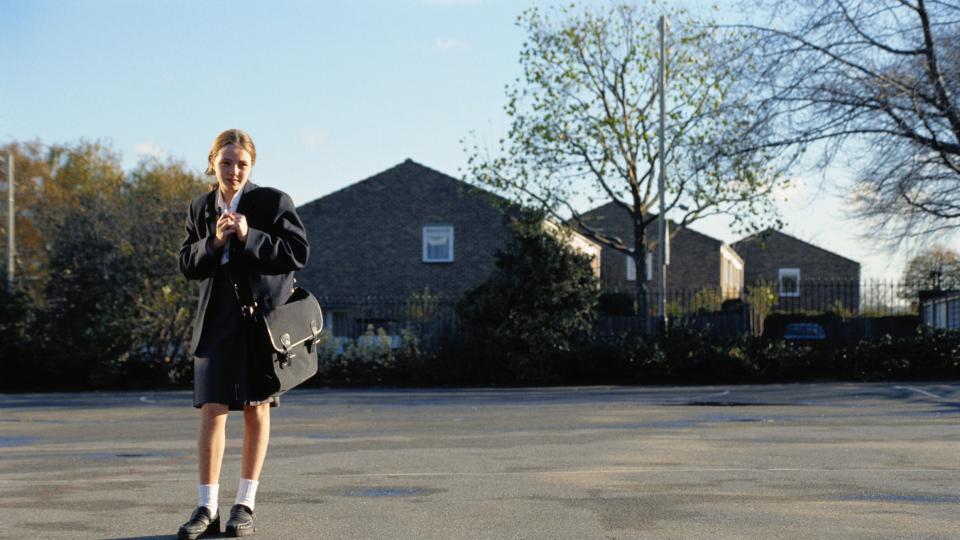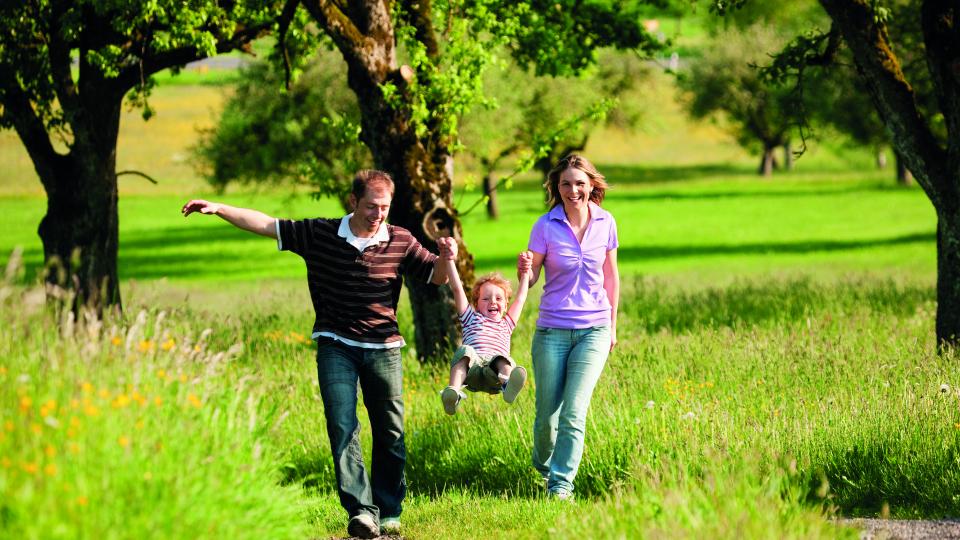
Pyramid Clubs for schools
Intro
Pyramid clubs run a series of 10 sessions held at schools for children who are shy, quiet, withdrawn and who may feel anxious about home or school situations, whether it's school work or friendships. The idea is to develop their confidence, self-esteem and improve coping skills so that they can deal with anything that life throws at them.
The clubs help children and young people to develop strategies for managing their thoughts and feelings in a supportive and fun environment.
They are generally run as an after-school activity, but can also take place during the school day.
Depending on your school's proximity to the University of West London there are varying options for setting up (and managing) a Pyramid club.
Jump to each section of the page:
Pyramid Club evidence
The evidence behind the Pyramid intervention programme shows that it is beneficial for children's development and can have a significant impact on their life at school and at home.
Benefits
Benefits of Pyramid
- Fun learning activities for young people who are often excluded by their peers.
- Improve children’s coping skills and emotional resilience.
- A proven, low-cost, non-stigmatising intervention.
- Help avoid more serious mental health problems in the future.
- Encourage a positive attitude towards school and learning.
- Extensively evaluated over 20 years.
Evidence-based approach
Pyramid Clubs are rooted in cognitive and positive psychology – read more about the research supporting them.
The size of the group is typically 10 children, supported by three or four trained leaders. Research suggests this is the optimum size: not so big that children are intimidated, but with enough diversity of characters that children are likely to find common ground and make connections.
The high ratio of adults to children allows for discrete one-to-one support within the group session so no child gets overlooked.
Key facts about Pyramid clubs
- For children aged 7-14, who meet the criteria for inclusion, identified by someone in their school who knows them well.
- Normally take place after school, but sometimes during the school day.
- May run in other settings (eg a voluntary organisation's facility).
- Suitable for boys and girls, children of all abilities and from different ethnic and social backgrounds.
- Mainly for children who are quieter, anxious or struggling with friendships.
- Run in 100s of primary and secondary schools across the UK.
- Take place once a week, for 90 minutes a week, over 10 weeks.
- Pyramid Activity Packs are provided by UWL, but also offer a flexible programme to meet the individual needs and interests of the children in the group.
- Included on the Mentally Healthy Schools website
- Validated by the Early Intervention Foundation
What does it cost?
Pyramid clubs are run in individual schools, groups of schools or academy chains, and in voluntary organisations across the UK under a licence from the University of West London. The costs are:
- Starter pack of materials per school - £185
- Annual licence for one school - £85
- Virtual training for club leaders, six hours on one day or split over three two-hour sessions - £95 per person
- Face to face training for club leaders, up to 20 people over two days - £750
- Starter pack and materials for a group of schools/other organisations (including initial training) - £3,225
- Annual licence for a group of schools/other organisations - £300
- Note that the cost for a UWL-delivered club is £90
Feedback
C has integrated really well into her new class. She has blossomed and is now more confident and mature. Her attendance has improved from the start of the year and she worries less about coming to school. She achieved (the expected standard) in her SATs test, her teacher wouldn’t have expected that at the start of the year."
Pyramid resources
The University of West London, provides training and resources to schools and club leaders, to help you run Pyramid clubs effectively.
Find below some resources available to support schools, professionals, parents and voluntary organisations interested in Pyramid.
-
1. Information for schools running Pyramid clubs
Manual that describes in detail the Pyramid model and the essential steps you need to take to run a quality club.
-
2. Pyramid Quality Assurance guidance
Self-assessment based on the Guide to ensure that clubs are run to a high standard so that the desired outcomes are achieved.
-
3. Pyramid club file
Working document for running clubs, including planning and observation sheets, 10-week plan examples, evaluation forms for children, parents and club leaders, club register etc.
-
4. Pyramid club leader handbook
Each club leader receives a Handbook at training, covering the theory and practice of delivering Pyramid clubs. The Handbook covers children’s social and emotional needs, group work, keeping children safe, and planning clubs to promote self-esteem and confidence.
-
5. Activity packs
Primary schools will receive the primary and transition activity packs, and secondary schools will receive the secondary activity pack.
-
6. Strengths and Difficulties Questionnaire (SDQ)
The Goodman’s Strengths and Difficulties Questionnaire is provided as an Excel spreadsheet, to allow quick and easy screening of children to identify those suitable to join a Pyramid club.
-
7. 'What is Pyramid?' videos
YouTube-hosted primary school and secondary school films are available of different durations, demonstrating Pyramid Clubs. These are suitable to show to staff and parents and the secondary film also includes a version for young people.
-
8. Information leaflets
Digital copies of leaflets aimed at professionals and parents to explain what Pyramid is about.
-
9. Certificates for children and club leaders
Children receive certificates for attending the clubs and club leaders receive certificates for both attending the training and running a club. These certificates can be amended to include other logos (eg the school’s or the organisation’s) and names can be typed in.
-
10. Badges for children and club leaders
Small metal pin badges in a pyramid shape and using the Pyramid colours.
-
11. Working with children in groups: an A-Z of common conditions book
Children who attend Pyramid clubs often have other conditions apart from those that made them suitable for a club: this book provides guidance on how to manage those conditions within a group setting and where to go for more detailed support.
This book is available for purchase at £14.99. Buy your copy online.
Working with children in groups means dealing not just with the difficulties each child is experiencing, but also the reaction of other children (and adults) to those difficulties.
This book covers a wide range of medical, social and psychological conditions, with advice on how to manage them within the group. Each condition is described and its impact on the child within the group is discussed, with strategies for managing the condition and sources of more detailed support signposted. Suitable for use in schools, youth groups and other settings.
Items 1-10 are only available to licensed Pyramid projects or schools.
Item 11 is available to purchase.
More testimonials
Child X was a seven-year-old boy who for no apparent reason became extremely unhappy about coming to school in year 3. He had great difficulties putting his anxieties into words.
On the day of the first club Child X came into school with no problem. He came to the club after school, mixed well with the other children and said he couldn’t wait to come back next week. Subsequently every Thursday, the day of the club, he came into school smiling. Over time his new-found friendship and self confidence made him much happier to come to school. He is now in year 5; his attendance has vastly improved and his friendship circle has grown much wider. When he sees us around school he often asks if we still do Pyramid club and always comments on what fun he had and wishes he could go back for more."
Parent and volunteer information FAQs
If your child’s school is running Pyramid clubs you may want to know more about them and how they might support your child. The FAQs below should give you a better idea of how the clubs are run and answer any other questions you may have.
-
What are Pyramid clubs?
Pyramid clubs are activity clubs that usually run after school for small groups of children. The children are invited to join the club because their teacher (or another worker) believes they would benefit from being involved.
At the club, children do lots of fun activities to help them improve their confidence and develop new friendships. In some areas, Pyramid clubs are run by organisations other than schools, but the format is much the same. Clubs usually run once a week for an hour and a half, for 10 weeks.
Each club follows a similar format (eg in the first week the children choose a name for their club) but will develop differently depending on the wishes of the children, the club leaders, the time of year, the facilities available, and so on.
-
My child has been invited by his / her school to take part in a Pyramid club. Does he / she have to attend?
No – Pyramid clubs are voluntary activities, not part of the statutory curriculum.
-
Will I have to pay for my child to attend a Pyramid club?
No – parents should not be charged for their child to attend a Pyramid club.
-
Does this mean my child has some sort of behavioural problem or special need?
Children who go to Pyramid clubs are a very mixed group. Some may have special educational needs, but many do not; in fact, some are very high achievers academically. Pyramid children also come from all sorts of ethnic and social backgrounds.
The reason they have been approached to join the club is that their teacher has noticed they are not always comfortable in a big group – perhaps they get a bit lost in a busy classroom, or they may be new to the school or going through a difficult patch for some reason.
As a result, they may not be doing as well in school as they could be, both academically and socially, and they miss out on opportunities as a result.
The aim of the club is to give them some breathing space, let them build up their confidence in a smaller group, and then, hopefully, feel better about themselves in the classroom and outside of school.
-
I like the sound of the club, but I don’t think my child needs additional support. Should I let him/her go to it?
Just like adults, children can be very confident in some situations and not so confident when faced with new situations – a large group of people, or a difficult task. In the comfort of their own home, your child may seem perfectly at ease and confident.
However, it might be more difficult for them in school and, unfortunately, they have little choice but to go! Anything that can be done to make school a happier place for them is probably worth trying.
Ultimately, you will know your child best and are best placed to decide whether a Pyramid club is going to benefit them.
At the very least, Pyramid clubs are fun places to go to, and they will not harm your child in any way.
-
I’m a bit worried that some of the other children who are going to the Pyramid club have a bit of a reputation, and I don’t think my child has the same sorts of problems as them.
Pyramid clubs are designed for the quieter, less confident child. However, it is not always obvious from behaviour outside of school that a child is quiet in a large group or in a more formal environment.
If you have concerns about how the children invited to the club have been chosen, you should speak to your child’s teacher or headteacher in the first instance.
-
I’d like my child to go to the Pyramid club, as I think he/she would really benefit from it, but he/she seems reluctant. How can I persuade him to try it?
Many children who go to Pyramid clubs are a bit shy and reluctant to push themselves forward. However, the vast majority love the clubs once they do go.
Perhaps you could encourage your child to at least give it a go, say for the first two or three weeks, before making a final decision. Once they get involved, it’s likely they’ll want to carry on going.
If you speak to the person setting the clubs up, they may be able to speak to your child to encourage them to give it a go, or they may be able to tell you who else will be there that your child might like to be with.
It may help if you focus on the positive activities that will be available at the club and stress that the children get to choose a lot of what happens at the club.
-
What exactly will the children do at a Pyramid club?
In the first week the children get to choose a name for their club and set down some rules for how people will treat each other at the club. The children will be encouraged to suggest ideas for activities to do from week to week.
The sorts of things that take place are games (usually team games), preparing and sharing food, arts and crafts, singing, drama, and anything else the children might agree on. One key thing that happens at Pyramid clubs is circle time.
Some children will be familiar with circle time from school, but it is both more exciting and less frightening at a Pyramid club. Circle time is used both for games and for exploring issues in a non-threatening way, eg the children may discuss how to tackle bullying, or they may share their worries or concerns with the other children and the leaders.
Circle time is also used to share good times (a bit like an older version of show and tell!) and, in the small group, can be a very positive experience for the children.
-
Who are the people who will be running the club?
The club leaders might be school staff, perhaps learning support assistants, family workers or learning mentors. Very occasionally teachers run clubs, or external organisations’ workers may take part.
Many club leaders are volunteers, perhaps students at a local university or college, people who are between jobs or looking to return to work, retired people, or workers from a local business.
In some places, older secondary school or sixth form students also get involved in clubs. All volunteer club leaders are vetted on behalf of the school before being allowed to take part in clubs, and they are supervised.
The club leaders are there to ensure that the children are safe and have a good time. They receive training to ensure that the children are well-supported at the club. They will build up a rapport with the children and will probably be on a first-name basis with them.
-
What should I do if I’m not happy about something at a Pyramid club?
It is important that, if you have any concerns, you speak to someone sooner rather than later. You could speak to one of the club leaders before the club session or after it, or you could speak to the person who set the clubs up in the school or wherever they are taking place.
-
Where can I look for additional support for my child?
There are lots of organisations, websites and books that can help you support your child. Your child’s school or any other organisation you are involved with may be able to suggest some.
Otherwise, your local authority should have a Children’s or Families’ Information Service which you can find out about on their website or at your local library or council offices: this should tell you about activities for your children to take part in locally, or organisations that can offer advice and support.
There is a national support organisation for almost every sort of medical condition or behavioural difficulty which your GP practice should be able to help you find if you cannot find it on the internet or through your local library.
Pyramid clubs leaders may also be able to give you advice on sources of further support.
-
Now that my child has been at a Pyramid club, what else can he/she do?
Pyramid clubs can often be a stepping stone to other groups for children, but which ones will depend entirely on your child’s interests and what else is available locally.
If the club has successfully increased your child’s confidence, he or she may feel up to the challenge of doing something new or with a new group of people.
There may be other after-school clubs at your child’s school covering a wide range of activities (sports, languages, homework, gardening, cookery, IT etc); classes or clubs may be advertised at your local library or on local websites; or your child may want to join a more formally organised club like a local sports club, Brownies or Cubs, or a children’s group at your place of worship etc.
-
I’d like to get involved as a Pyramid club leader. How do I join?
You can find out more about volunteering below. Most local Pyramid projects welcome volunteers and the experience you have of your own child will help you understand and work with other children.
-
How can I get my school to offer Pyramid clubs?
If your school is not already running Pyramid clubs and you think the children would benefit from them, you might like to start by referring someone in the school to this website.
The most appropriate person will probably be the person responsible for coordinating the Personal, Social and Health Education, pastoral support or Mental Health within the school, but you can always start with your child’s class teacher, the school’s Special Educational Needs and Disabilities coordinator, or speak directly to the headteacher or a governor.
-
Volunteering
Pyramid welcomes volunteers of all ages, levels of education, ability, ethnicity, language, culture and gender.
Whatever your skills and experiences of working with young children, our training programme will prepare you for understanding and working with children in Pyramid clubs.
Our volunteers are predominantly female and we are always looking to increase the number of male volunteers.
So, if you have enthusiasm, a sense of fun and are able to play, listen, laugh and above all, respect children for their individuality, Pyramid could be just the volunteering opportunity for you.
-
What do volunteer club leaders do?
As a volunteer club leader, you will work in a small team to plan and run activity groups for children and young people who are between 7 and 14 years old.
The school helps identify children who need a boost to their confidence and self-esteem.
Pyramid clubs run after school for an hour and a half and involve fun games, cooking, circle time discussion and art and craft activities. They take place once a week for 10 weeks during the school term. Full training is provided and out-of-pocket expenses paid.
-
What do I get from becoming a volunteer club leader?
Volunteer club leaders are central to the work of Pyramid. We could not deliver our services to young children without your support. In return, you will get:
- free training underwritten by the University of West London which is an excellent introduction to play work and therapeutic activities with children
- a real sense of achievement, watching children grow in confidence and feel better about themselves
- hands-on experience in working with children
- experience of working as part of a team
- support from the school and/or the local Pyramid coordinator
- all out-of-pocket expenses paid
- references (on request)
- certificates for attending training and for running a club.
-
What is expected of me?
- a minimum of 10 weeks commitment for each club you undertake
- attendance at pre-club training sessions (usually three days)
- working as part of a team to deliver 10 club sessions
- additional time for planning activities and keeping accounts of the club expenses
- providing feedback on each child at the end of each club
- attendance at a post club meeting to discuss the children’s progress
- building relationships with parents and carers
- commitment to equal opportunities and diversity
- abide by Pyramid’s child protection and confidentiality guidelines
- an Enhanced DBS for the child workforce with a barred list check in England and Wales; PVG check in Scotland; or an enhanced Access NI check in Northern Ireland
- reliability, honesty, punctuality, flexibility and a sense of humour!
-
Student placements
I noticed that not only did the children become more confident, but I did too. I have never worked with children before but I have now realised that this is something I would like to do when I finish my degree." – Pyramid club leader, Hackney
Pyramid has arrangements with some colleges and universities to offer work placements for students on relevant courses.
In some cases, acting as a Pyramid volunteer will enable you to gain points towards your course total –please speak to your university or college placements supervisor to find out more.
If your college or university is not already aware of Pyramid, please let your local Pyramid coordinator know and he or she can contact us and we can speak to your the placements supervisor about formalising arrangements for volunteering.
Even if your course does not require you to complete a formal placement, volunteering for Pyramid will provide a useful reference when you later apply for jobs. Students from all sorts of disciplines have become successful Pyramid volunteers.
-
Employee volunteering
Many organisations encourage their employees to volunteer as part of the organisation’s commitment to give something back to their local communities.
Pyramid is a wonderful opportunity to work with children in local schools, often in the more deprived areas of the country.
In order to take part, volunteers would need to be at their designated school by 3pm one day a week, for up to twelve weeks, during term-time only, including a pre and post-club meeting with the school. This may involve leaving work a little early, or rearranging shifts.
Preparation and planning for your club can take place outside of work times, at a time and place suitable to you and the other members of your club team.
The benefits to employees are the same as for all volunteer club leaders, including:
- free training
- a real sense of fulfilment
- hands-on experience in working with children
- experience of working as part of a team
- certificates for attending training and for running a club.
Contact us
Pyramid across the UK is run by the University of West London.
You can email us at:
- Email pyramid@uwl.ac.uk
- Call 020 8231 2930 or 07810 853561.











